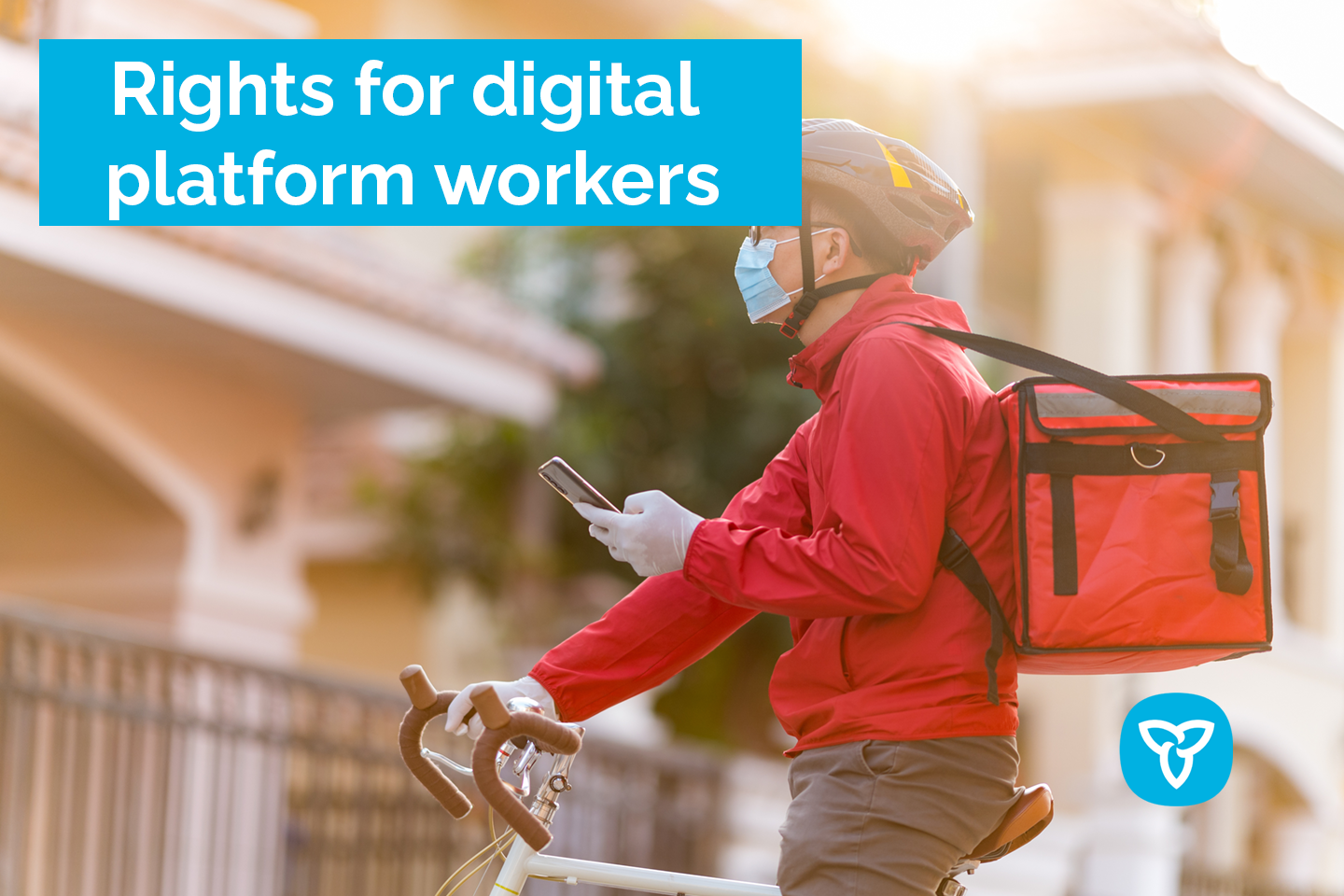
Establishing General Minimum Wage for Digital Platform Workers
Today, the Ontario government is introducing the Working for Workers Act, 2022 (Working for Workers Act 2), which would, if passed, continue to lead the country in building a stronger economy that works for everyone. Included in the legislation are changes that would make Ontario the first province in Canada to establish a minimum wage and other foundational rights for digital platform workers who offer rides or deliver food and other items for companies such as Uber, Door Dash and Instacart.
“As part of our plan to build a stronger economy that works for everyone, we want all workers to have every opportunity to earn a good living and provide for their families,” said Premier Doug Ford. “It doesn’t matter if you work for a big company, a small business or for a rideshare app. Our government won’t leave any worker behind.”
Data shows as many as one in five Canadians work in the gig economy, a number that is predicted to increase. However, these workers often face uncertain working conditions and lack necessary protections, including finding it difficult to predict paycheques or resolve complaints.
The government’s proposals would enshrine the following rights and protections for digital platform workers:
-
Earning at least the general minimum wage for time worked;
-
The right to keep their tips along with regular pay periods;
-
The right to information and clarity around algorithms including:
-
how pay is calculated; and
-
how and why a worker might be penalized in the allocation of work;
-
-
Written notice if they are being removed from the platform and why;
-
The right to resolve their work-related disputes in Ontario; and
-
Protection from reprisal should they seek to assert their rights.
“No one working in Ontario should ever make less than minimum wage for an hour's work," said Monte McNaughton, Minister of Labour Training and Skills Development. “No one working in Ontario should be dismissed without notice, explanation, or recourse. No one should have to travel out of the country to resolve a workplace dispute or sign a contract they do not understand. These core rights are a foundation in our mission to help all workers earn bigger paychecks to take care of their families, not an endpoint.”
This announcement follows the province’s commitment to design a health care benefits plan tied to millions of workers who currently don’t have access to them, including digital platform workers.
Also included in Working for Workers 2 is a requirement for employers to disclose their electronic monitoring of employees and several red tape reductions to encourage out-of-province workers to help fill the generational labour shortage.
These measures are part of Ontario’s ambitious plan to attract the best workers from across Canada – and around the world – by making the province the best place to live, work and raise a family. They follow legislation in the fall to remove unfair and discriminatory barriers against foreign-trained professionals, introducing the “Right to Disconnect” and the banning of non-compete clauses.
Quick Facts
-
Many digital platforms use algorithms to determine when and how quickly workers are given their next delivery or customer. However, most digital platforms do not share this with their workers making it unclearwhy other workers may pick up more work than them.
-
Some digital platforms do not provide their workers with clear explanations on how their pay is calculated. This makes it difficult to predict their earning.
-
Digital platforms can currently remove workers from their platforms without providing an explanation why. If workers appeal the decision, they may not be able to speak directly with a person.
-
These proposed measures were informed by the recommendations made by the experts of the Ontario Workforce Recovery Advisory Committee, based on their consultations with workers, employers, and unions.
-
Ipsos polling conducted to support the OWRAC found that:
-
89 per cent of Ontarians agree that “the workplace has changed permanently due to COVID-19 and Ontario needs to act to update employment regulations.”
-
Just over half of Ontarians feel that companies take advantage of tech or technology platform workers.
-
62 per cent of Ontarians agree that the province should guarantee a certain minimum level of income for technology platform or ‘gig’ workers.
-
-
86 per cent of Ontarians placed a high priority on ensuring that Ontario has enough highly skilled workers to meet the needs of employers.
